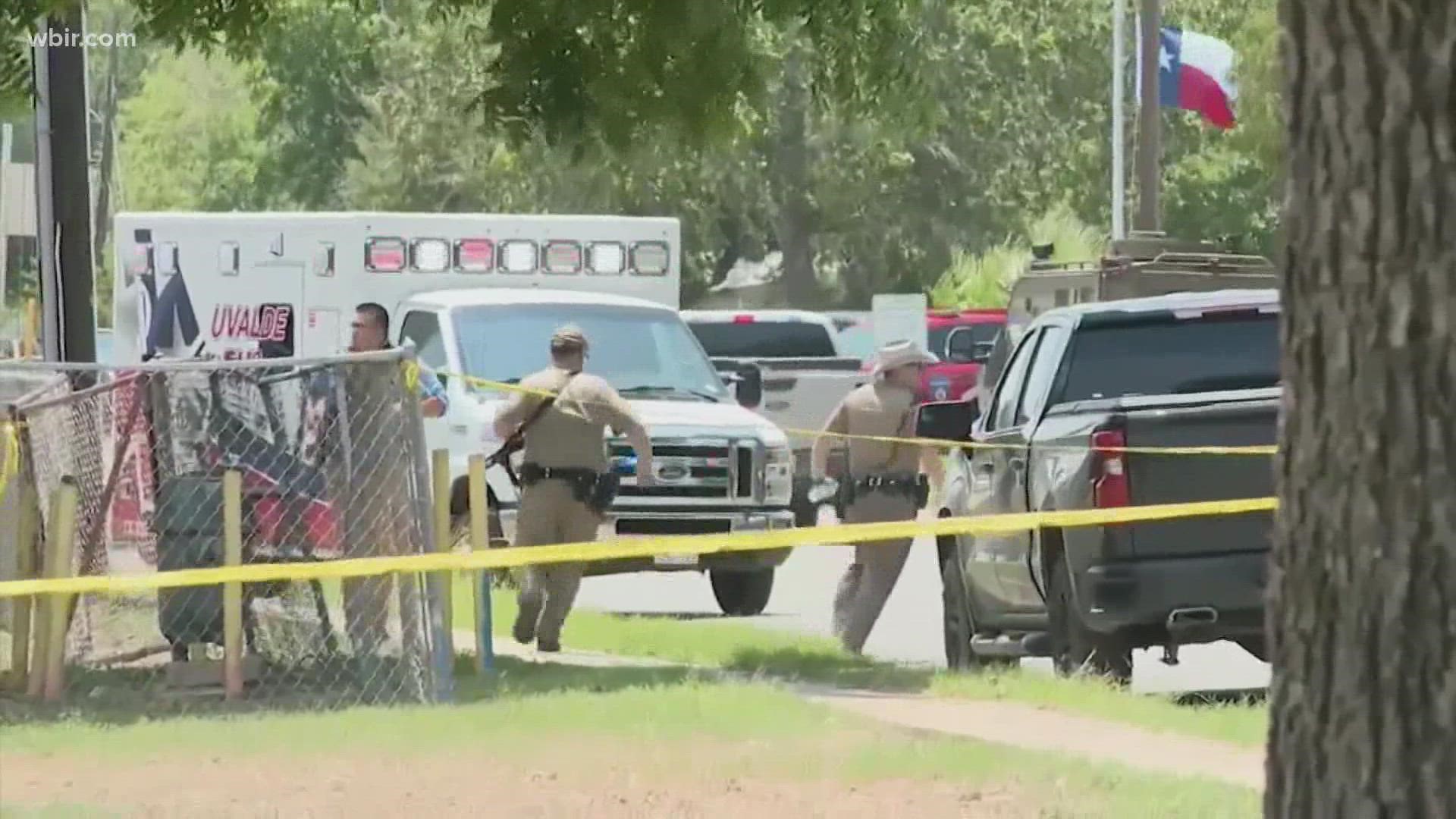KNOXVILLE, Tenn. — Before coming to Tennessee, Dr. Mary Lehman Held worked in San Antonio for more than a decade.
San Antonio is located roughly 1.5 hours away from Uvalde, where the second-deadliest school shooting in American history took place on May 24.
Held said she was devastated to learn about the tragedy at Robb Elementary School in which 19 children and two teachers were killed.
"It was gut-wrenching to know that the community was dealing with this," Held said. "I was heartbroken."
Heartbroken to learn about the lives taken and because she understands the trauma that witnessing such a tragedy has on others.
As associate professor and assistant dean of the UT Nashville campus, and program director of the campus's Master of Social Work (MSSW) program, Held's research is focused on trauma and resilience among immigrant communities, including Latino populations.
"Latinx communities have already coped with so much stress and trauma over the past several years that this is one more and one more really devastating, profound trauma of loss of children," Held said. "Latinx" is a gender-neutral term referring to Latino communities.
That trauma doesn't stop at those directly impacted by the shooting, Held said.
It will have a rippling impact on Latino and Hispanic communities nationwide, including here in Tennessee.
"They will feel the rippling effects because they're seeing Latinx community members being targeted, they saw Latinx youth being attacked. And so, they will translate that into worrying about whether they're going to be okay, sitting in school that day," Held said.
Without any form of treatment or support, Held explained, these symptoms can develop into lifelong conditions.
"We need here in Tennessee widespread accessible mental health resources, we need mental health resources in the language of immigrant communities. That is a huge barrier right now," Held said. "I receive emails several times a month asking for referrals for mental health providers who speak Spanish as one example."
The need for local mental health professionals who are also people of color was highlighted in a recent report from the Mental Health Association of East Tennessee.
"That person of color might want a therapist or mental health professional of color so that they know that person understands exactly what they have experienced, may have experienced the same things themselves, or speaks the language," explained Mental Health Association of East Tennessee CEO Ben Harrington.
In Knoxville, Centro Hispano De East TN connects families with information and resources, including mental health professionals. All of the organization's services are provided in Spanish.
Held said Latino and Hispanic communities have unique cultural strengths that also aid in resilience and coping.
Familism and collectivism, she said, are examples of that.
"Communities are going to pull together during these incidents of trauma and they're going to support each other through this," Held said.

